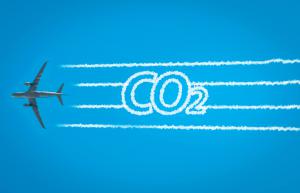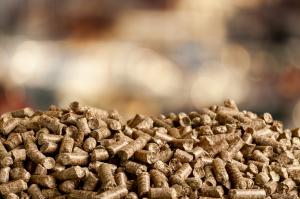The Path Toward Creating Sustainable Aviation Fuel That Could Change Everything
The Idea That Will Spark a Revolution
NWABF operates on an interesting premise – using the slash, forest residues, and mill residues that create real problems for developers. There are many western cities fighting annual forest fire devastation and there are companies in the timber industry trying to rid themselves of the waste from their operations, who can no longer bury the woody biomass leftover from their operations. There are technologies now being utilized which can convert woody biomass into fuel using a unique gasification process. The idea behind gasification has been around for some time. The idea of using forest biomass to create SAF on any serious production scale, however, has not. NWABF is expanding on the idea nationwide to start, then potentially world-wide, in part, thanks to a recent announcement in securing one of the largest offtake agreements that was just announced with a major Air Line.
Forest owners, mill owners, cities who live near large forests in the many U. S. states and many more will gladly offload the material they do not want and do not use that has become a liability to them. These materials can create methane gas in many settings when left on the ground or buried, and some business owners truck it to various places around the country just to get rid of it. NWABF will take this leftover material, prepare it and put it through the gasification process to turn it into SAF, also known as biojet fuel.
The advantages of this biojet fuel are clear. Sustainable aviation fuel burns far cleaner and it’s a better fuel for the engine parts themselves. What’s more, it has environmental benefits in that the process removes up to 90% of the sulfur that is generated by petrochemicals and conventional jet fuel. Added to the fact that the company is working to stay in line with current fossil fuel prices, and you have a winning product.
A Closer Look at The Biomass Source
Currently, NWABF has obtained contracts in the Northwest with adequate proximity to Grays Harbor, WA, where the first Project will be located. In the near future the company plans to explore more Sites with adequate proximity to required amounts of feedstock or woody biomass.
What is the Timeline For this Project?
NWABF has completed Phase 1 of a major Engineering Study and is currently completing the FEL2 phase of the Engineering Studies required to enter into Phase 3, which is the Front-end Engineering and Design phase of a Project, (“FEED”). This phase will take about a year and allow the Developer to assess the actual costs and time to build under a fixed term, fixed-price contract. At that point, the scientific research is done, the numbers are all verified by NWABF’s Engineering, Procurement and Construction company, (“EPC”), and it’s time to begin Phase 3, which is the beginning of the actual construction. This phase could take up to three years to complete and will represent a multi-billion dollar project when completed.
A Project with Great Potential
The reality is that this project is not just about sustainable aviation fuel. It’s also about coming up with an idea that will help the aviation industry reduce greenhouse gas and its carbon footprint to help with climate change. Additionally, it’s about changing the economy of the areas involved in the project. There are hundreds of jobs at the start of construction and there are many long-term jobs created to operate the facility. To that end, there are many opportunities for many other businesses to develop within the supply chain like barging of woody biomass materials, finished fuels, food trucks, equipment suppliers, etc.
The company’s Project General Manager, Chris Whitworth, who is also a local resident in the area said, “We're going to be bringing in hundreds of people to build it. We're going to be bringing upwards of 50-60 people to operate it. We will then need to get the feedstock to the site, every day, so the trucking and barging aspect is important. We’re going to be bringing a barge system back that has been idle for many decades since the slowing down of the Timber industry. We need a lot of barges coming in and out. That is going to be a big deal for a lot of companies. New groups will be going into the forest and going after the forest slash, which in the past was just left on the ground. It's never been used. It’s a huge fire hazard to boot. People and businesses will be needed for the trucking of the slash, the grinding, the chipping, and the machinery itself creates business. It cascades out a long way. The volume that we need requires a lot of equipment, and a lot of manpower.” The tax base benefits created will benefit Grays Harbor, the County, the Port Authorities, the surrounding cities and the State of WA. These are potentially huge benefits.”
“This project will mean so much for so many people and organizations in the state of Washington as well as for the future of the environment for years to come,” adds Northwest Advanced Bio-Fuels, LLC’s Manager of the Project, David Smoot, is a voting member of the Creek Indian Tribe of Oklahoma. “We are dedicated to working with the local Quinault Tribe to bring long-term economic relief, as well as potential career paths through jobs, apprenticeships and educational support for local Tribal Youth.”
If you have an interest in discussing the merits of our Project, please contact us at info@nwabf.com.
David P. Smoot
Northwest Advanced Bio-Fuels, LLC
+1 602-753-8386
email us here
Visit us on social media:
Facebook
Twitter
LinkedIn
Legal Disclaimer:
EIN Presswire provides this news content "as is" without warranty of any kind. We do not accept any responsibility or liability for the accuracy, content, images, videos, licenses, completeness, legality, or reliability of the information contained in this article. If you have any complaints or copyright issues related to this article, kindly contact the author above.


